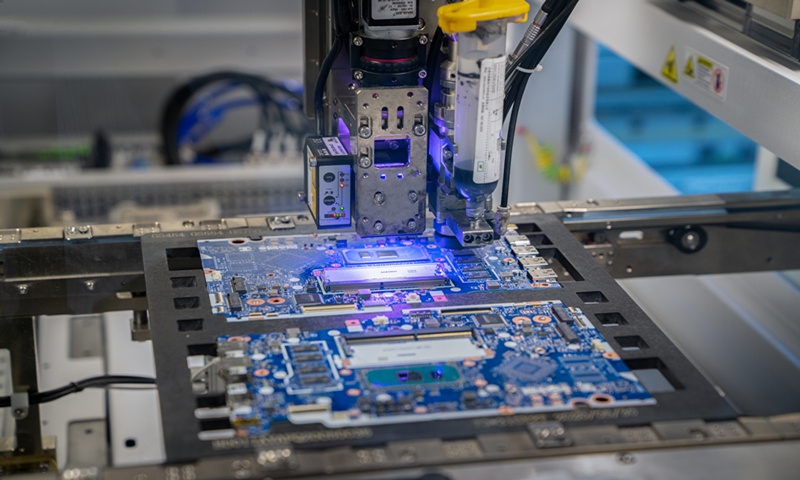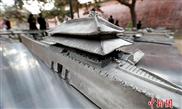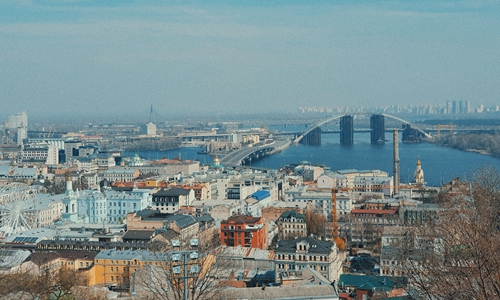Chinese suppliers of noble gases, key for chipmaking, ramp up production to meet surging demands

A chip manufacture machine Photo: VCG
Chinese suppliers of noble gases such as krypton, xenon and neon, key materials for chipmaking, are churning out products to handle surging orders amid rising concerns for what could be an unprecedented supply disruption after the reported cut-off of trade activities in southern ports in Ukraine, an important global exporter of noble gases.
While the Russia-Ukraine conflict escalates, being exacerbated by the sweeping sanctions imposed on Russia from the US-led West, industry insiders said that the disruptions will push semiconductor-related industries to lean toward countries like China to fend off risks.
Several Chinese noble gas producers told the Global Times on Monday that their daily order inquiries from both home and abroad had jumped five to six times now, as a result of the military conflict in Ukraine.
A large domestic noble gas producer told the Global Times on condition of anonymity on Monday that it had received tens of new order inquiries on a daily basis, where it used to be just three to five, mostly from semiconductor producers from home and abroad.
The person said that there is rising market speculation over noble gases in the chip industry amid the fast-changing situation in Ukraine. The company produces krypton, xenon and neon gas for international clients.
Despite the extra demand, it has reached its production ceiling and capacity expansion takes time, the person said.
Ukraine is a major exporter of noble gases, of which neon accounts for 70 percent of the global supply and krypton 30 percent, according to the China Industrial Gases Industry Association.
With the suspension of trade activities, including the service halt by some large shipping companies in Odessa, a major port in southern Ukraine, the market prices of noble gases have soared.
For example, the price of neon gas in China's domestic market has exceeded 1,650 yuan ($261.5) per cubic meter, an increase of 65 percent from the beginning of the year, and it has quadrupled from a low in October 2021.
Ma Yinchuan, head of the China Industrial Gases Industry Association, who is also the general manager of Beijing Shougang Gas Co, a large domestic gas producer, told the Global Times on Monday that there has been a conspicuous increase in inquiries this week from both old and new clients, who are asking about the prices and supplies of noble gas.
"There is one chipmaker that came to us today asking for an emergency purchase of tens of cubic meters of xenon, which is quite a lot to us, since our annual xenon production is 200-300 cubic meters," Ma said.
While the market demand for more noble gas is understandable, Ma said that there is no need to be overly worried about market shortage.
"Even though noble gases from Ukraine may be disrupted now, its impact on market supplies should be manageable, since most of the domestic companies would hold at least 3-6 months of inventories," Ma said.
AutoChips, a semiconductor-related company, based in Hefei, East China's Anhui Province, told the Global Times on Monday that they are in close communication with industry chain partners including TSMC over the potential impact from the changing situation in Europe.
At present, the company's business has not been affected, and it will not be affected in the short and medium term, according to AutoChips.
"The upstream of the chip foundry has a relatively long supply chain. Even if the upstream supply of some noble gases is in short supply, it will take a certain amount of time to transmit it to the downstream," a source with AutoChips said.
A recent media report said that international semiconductor-related companies including ASML are looking at diversified sources of neon gas in the face of the Russia-Ukraine conflict.
China always has a self-reliant supply of krypton, xenon and neon, but supply could be tightened as more global demand comes to China, Ma said.


